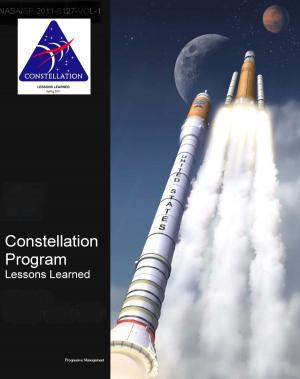Contested Ground: The Historical Debate Over NASA's Mission - From Sputnik to the Apollo Moon Landing, Space Shuttle and Space Station Decisions, Commercial Space
Nonfiction, Science & Nature, Technology, Aeronautics & Astronautics| Author: | Progressive Management | ISBN: | 9781301760459 |
| Publisher: | Progressive Management | Publication: | April 8, 2013 |
| Imprint: | Smashwords Edition | Language: | English |
| Author: | Progressive Management |
| ISBN: | 9781301760459 |
| Publisher: | Progressive Management |
| Publication: | April 8, 2013 |
| Imprint: | Smashwords Edition |
| Language: | English |
Since the opening of the space age nearly 50 years ago, the U.S. government has spent close to $1 trillion on space-related activities. Although by no means the largest public expenditure over that period—it is easily dwarfed by national defense, social security, and countless other federal programs—it is still, by any measure, an enormous amount of money. It therefore seems perfectly reasonable to ask: what has the American taxpayer gotten in return for this rather large investment?
This book will examine the changing views of NASA's mission(s) held by government officials over the years. Drawing upon relevant concepts in political science and public administration, it will attempt to account for the shifts in space policy, by describing the political, economic, and technical factors that helped bring them about. Among the questions to be addressed are: what did policymakers envision when they created the agency in the first place? Why was there such strong (albeit not entirely unanimous) support for Project Apollo in the early 1960s, and why did it fade away in such a relatively short time? What caused NASA and the program to languish throughout most of the 1970s, and why did it reemerge (after a fashion) in the 1980s? Finally, what is the agency's role today?
There is one fundamental question about the agency which, although it has existed literally since its founding in 1958, has seldom even been asked directly, let alone examined in any detail. Stated simply: at no point in NASA's history has there ever been a clear, specific statement of its actual purpose. What, in a word, do policymakers believe that the agency is for?
- What is NASA's Mission? * 2. Analytical Framework * 3. Prehistory: Space Policy Before Sputnik * 4. NASA: Born out of Fright, 1957-1961 * 5. Mission Advanced * 6. Mission Accomplished... Now What? * 7. Space Policy Redefined (Again) * 8. Dollars, Not Dreams; Business, Not Government * 9. Concluding Thoughts
Since the opening of the space age nearly 50 years ago, the U.S. government has spent close to $1 trillion on space-related activities. Although by no means the largest public expenditure over that period—it is easily dwarfed by national defense, social security, and countless other federal programs—it is still, by any measure, an enormous amount of money. It therefore seems perfectly reasonable to ask: what has the American taxpayer gotten in return for this rather large investment?
This book will examine the changing views of NASA's mission(s) held by government officials over the years. Drawing upon relevant concepts in political science and public administration, it will attempt to account for the shifts in space policy, by describing the political, economic, and technical factors that helped bring them about. Among the questions to be addressed are: what did policymakers envision when they created the agency in the first place? Why was there such strong (albeit not entirely unanimous) support for Project Apollo in the early 1960s, and why did it fade away in such a relatively short time? What caused NASA and the program to languish throughout most of the 1970s, and why did it reemerge (after a fashion) in the 1980s? Finally, what is the agency's role today?
There is one fundamental question about the agency which, although it has existed literally since its founding in 1958, has seldom even been asked directly, let alone examined in any detail. Stated simply: at no point in NASA's history has there ever been a clear, specific statement of its actual purpose. What, in a word, do policymakers believe that the agency is for?
- What is NASA's Mission? * 2. Analytical Framework * 3. Prehistory: Space Policy Before Sputnik * 4. NASA: Born out of Fright, 1957-1961 * 5. Mission Advanced * 6. Mission Accomplished... Now What? * 7. Space Policy Redefined (Again) * 8. Dollars, Not Dreams; Business, Not Government * 9. Concluding Thoughts















